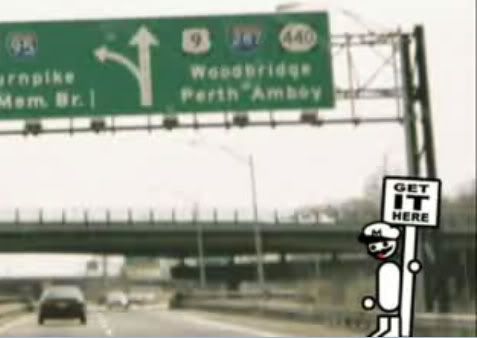Technically, this is a From the Vault entry. But it’s Thursday! So let’s call it Throwback Thursday instead, just to mix things up. I’ve been running this blog for over five years now. This is an entry from the very early days. Enjoy!

So you’ve written the next great American novel, or at least a Twilight-killer. It sits pristinely on your desk or hard drive and you can’t wait to get it into the hands of the public who are hungry for something new and interesting to take them away from the dark soul-draining mire of everyday life, spinning your words into gold. But there’s something you need to do first.
You need to sell yourself.
Now I don’t mean that it’s time to pull on the fishnet stockings and hit the streets of the nearest slum. No, I mean you need to send the right queries to the right people.
Would You Buy This?
I might go into more detail and give examples on what not to do in a query letter in another Thursday post, but suffice it to say that the old adage of KISS applies – Keep It Simple, Stupid.
- Open with a hook. Introduce a character or situation that you think will drive the work.
- Give a synopsis of the plot. Let the reader of your query know what they’re in for in general, but don’t give away all of your twists & secrets.
- Thank them for the time they’ve taken to read the query.
- Offer them an outline and sample chapters if you’re pitching a book.
- Let them know you’re looking forward to a prompt reply.
Again, I’ll elaborate on these points at another time. Let’s talk about where these queries are going.
The Knife Guy
I have an old edition of the Complete Guide to Novel Writing, and one of the authors describes agents as “knife guys.” Basically, the agent’s job is to cut through the slush piles and red tape of publishing houses, going right to the heart to someone they know on the inside who can help your work see print.
Finding an agent is the most expedient way to get your work published. And by most expedient, I mean that if you get your work accepted, an agent will be more prompt in responding to you than a publisher will be, in most cases. This is because an agent is part writing partner and part mercenary. They understand your need to express yourself and tell your story, and they’re willing to do your dirty work if you pay them enough, usually on commission from your advance & sales. If you win, they win. I’d advise going this route, even though I myself have had zero success in hooking one. Though it has occurred to me I might be fishing in the wrong pond.
Go to the Source
You can, if you prefer, send queries directly to the editors at publishing houses. While this means you don’t have to share your spoils with an agent, it also means it’s much harder for your work to stand out. An agent tends to work face-to-face with publishers, whereas your query letter is one of quite a few that flood into publishing houses on a regular basis.
However, a work that is unique enough or fills a void a publishing house is hungry for might survive the bucket of swamp run-off that is your typical slush pile. Your mileage will vary depending on your genre and the nature of your work. While nobody else on the planet can write exactly in your style on the subject you’ve decided to work with, there might be enough similarities between you and another author that the recipient might decide neither are worth an investment.
Don’t Give Up
Sending queries is a long, thankless, and depressing process. You’re facing entry into a field of entertainment that is crammed with both existing authors looking to continue their careers and new talent frothing at the mouth to get noticed. Know this: you are going to get rejected.
Maybe you’ll get lucky and get a letter of interest within the first wave of your queries. But it’s more likely that you’ll get a bunch of form letters saying that your work isn’t quite what they’re looking for and thanking you for your effort. Try not to think of it as a reflection on your work, but rather an increase in your chances of getting a positive response.
Another book I own, I believe it’s What Color Is Your Parachute? says something about the interview process that applies to sending queries. Your responses are going to look something like this:
NO NO NO NO NO NO NO NO NO NO NO NO NO NO NO NO NO NO NO NO NO NO NO NO NO NO NO NO NO NO NO NO NO NO YES
That “Yes” will make the mountain of rejections disappear so fast it will make your head spin.
Do It Yourself
You could always try to publish your book yourself, but this is an expensive and time-consuming process and you’re better off writing instead of going through it. Even if it’s just writing & sending more query letters.


